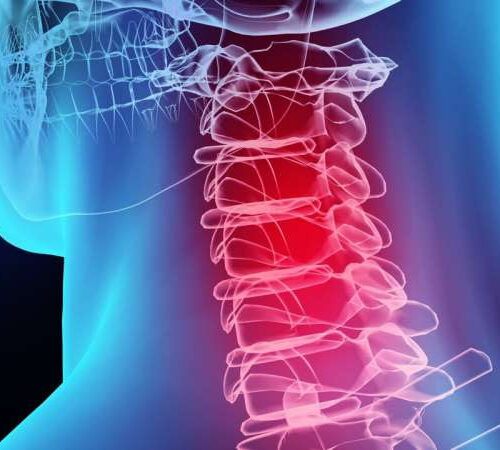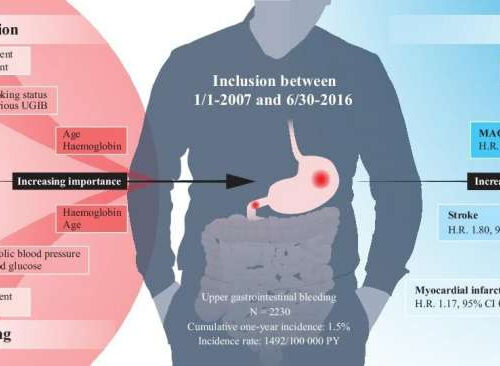by University of Toronto Credit: Unsplash/CC0 Public Domain Nearly 80 percent of participants in a University of Toronto study lost a “clinically significant” amount of body weight in less than two years after following three successive and varying diets. The dieters followed, in sequence, a calorie-restrictive diet, a low-carb/high-fat diet and an intermittent fasting diet, losing 11.1 kilograms on...
New technology holds the key to better care for whiplash injuries
by University of Sydney Credit: Shutterstock New research is set to significantly improve the diagnosis and treatment of whiplash injuries, one of the most common and challenging injuries following a non-catastrophic motor vehicle collision. The longitudinal study, conducted over more than five years, involved researchers from the University of Sydney and Northern Sydney Local Health District along...
Amyloid deposits in eyes provide a peek at Alzheimer’s disease risk
by University of California – San Diego Amyloid deposits tagged by curcumin fluoresce in a retinal scan. Credit: NeuroVision Amyloid plaques are protein deposits that collect between brain cells, hindering function and eventually leading to neuronal death. They are considered a hallmark of Alzheimer’s disease (AD), and the focus of multiple investigations designed to reduce or...
Certain Biologics May Boost Serious Infection Risk in Patients With Psoriasis
NEW YORK (Reuters Health) —Psoriasis patients who are new users of infliximab and adalimumab appear to be at a greater risk of serious infection than those beginning therapy with etanercept, according to French researchers. In an online paper in JAMA Dermatology, Dr. Emilie Sbidian of Hôpital Henri Mondor, Creteil, and colleagues note that biologics, as...
Exercise maintains normal heart rhythm in patients with atrial fibrillation
Sophia Antipolis, France – 23 Aug 2021: A six-month exercise programme helps maintain normal heart rhythm and reduces the severity of symptoms in patients with atrial fibrillation,according to late breaking research presented at ESC Congress 2021.1 “The ACTIVE-AF trial demonstrates that some patients can control their arrhythmia through physical activity, without the need for complex interventions...
Delayed care for juvenile new-onset type 1 diabetes
The study, published in the September 2021 issue in the journal Pediatric Diabetes,comprises 237 individuals aged up to 18 with new-onset type 1 diabetes. At some point in the years 2015–17, these children and adolescents were admitted to hospital in Sweden with acid poisoning (diabetic ketoacidosis, DKA), a condition that can arise if the patient does...
Eight predictors of upper gastrointestinal bleeding after heart attack
by Karolinska Institutet Graphical abstract. Credit: DOI: 10.1093/ehjcvp/pvab059 Researchers at Karolinska Institutet in Sweden have identified eight primary factors that increase the risk of a common bleeding complication after heart attack. Some of these factors are already known, but using machine learning techniques, the researchers have found additional predictors, such as smoking, blood pressure and blood...
After India’s brutal coronavirus wave, two-thirds of population has been exposed to SARS – CoV2
by Rajib Dasgupta, The Conversation Credit: Unsplash/CC0 Public Domain Cases of COVID-19 are surging around the world, but the course of the pandemic varies widely country to country. To provide you with a global view as we approach a year and a half since the official declaration of the pandemic, The Conversation’s editors from around the...
Inflammatory Diet Linked to Increased All-Cause Dementia Risk
A proinflammatory diet, as measured by the dietary inflammatory index (DII), is associated with increased risk of all-cause dementia, although not Alzheimer’s disease, according to a new analysis of longitudinal data from the Framingham Heart Study Offspring Cohort. Dr Debora Melo van Lent The lack of an association with Alzheimer’s disease was a surprise because amyloid-beta prompts microglia and...
Study confirms virus variants reduce protection against COVID-19
by Erik Robinson, Oregon Health & Science University Credit: Pixabay/CC0 Public Domain A new laboratory study from Oregon Health & Science University finds that blood serum drawn from people previously vaccinated or naturally infected show “significantly reduced” defense against two widely circulating variants of the novel coronavirus SARS-CoV-2. Researchers said that their findings emphasize the importance of...






